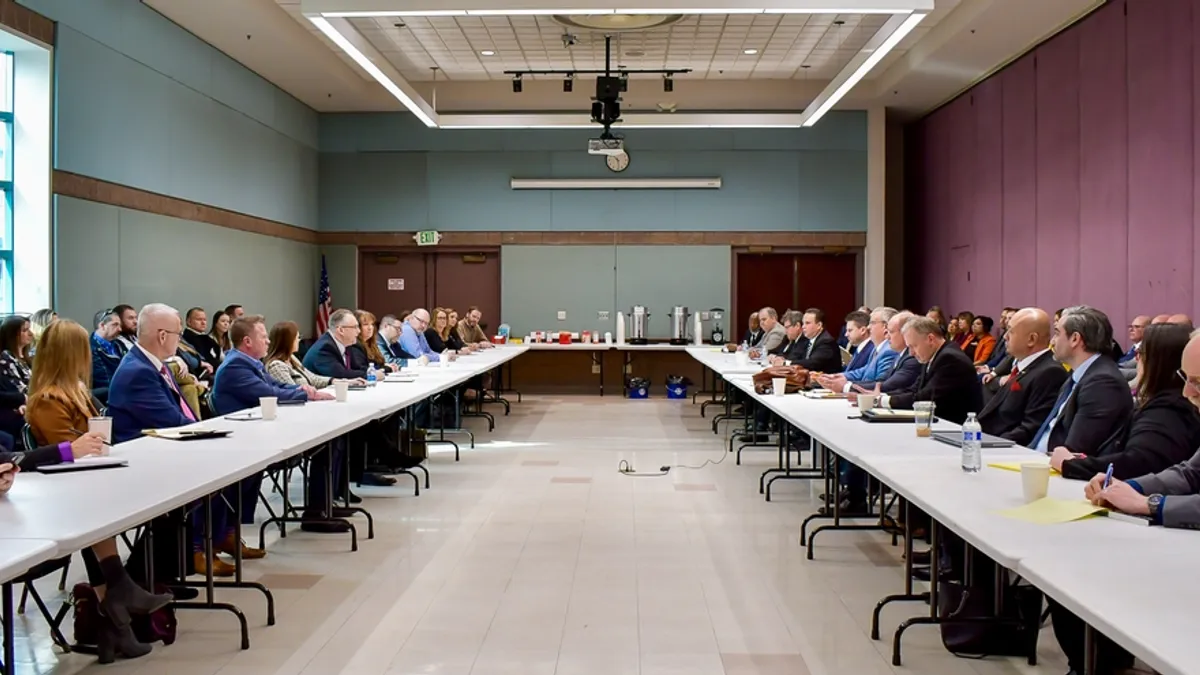Dive Brief:
- The Department of Commerce is investing $285 million in the technology consortium Semiconductor Research Corp. to create the first CHIPS Manufacturing USA institute in Durham, North Carolina, according to an announcement on Tuesday.
- The institute is part of a $1 billion funding initiative to advance semiconductor research and manufacturing in areas including design, advanced packaging, assembly and testing processes.
- The institute aims to train over 100,000 workers and students in digital twin technology over the next five years, according to the press release. A Commerce Department spokesperson said the agency plans to unveil updates in the coming months regarding a timeline for opening the institute.
Dive Insight:
This week’s announcement brings more specifics to plans first announced by the Commerce Department in May, when it opened up a notice of funding for the project.
Dubbed SMART USA — Semiconductor Manufacturing and Advanced Research with Twins — the institute will use digital twin technology to enhance semiconductor design and manufacturing, while also integrating artificial intelligence for improved efficiency and lower production costs.
The institute will partner with companies, startups, researchers and academia to achieve its goals.
It will also join 17 Manufacturing USA institutes aimed at improving the country’s technological edge and research and development infrastructure. Each has a unique technological concentration, including phototonics or advanced robotics. Manufacturing USA is operated by the interagency Advanced Manufacturing National Program Office, which is headquartered within the National Institute of Standards and Technology.
“At its core, the SMART USA Manufacturing Institute is about bringing people together as a cohesive team,” SMART USA Executive Director Todd Younkin said in the release. “Through this collaboration, we harness the collective strengths and expertise of our partners.”
SMART USA focuses on accelerating the development and adoption of advanced semiconductor technologies, shortening the time and cost of chip production and providing training opportunities for the next generation of semiconductor workers, according to the release.
More specifically, within five years, the institute aims to cut domestic semiconductor development costs by 35%, reduce manufacturing cycle times by 30% and decrease greenhouse gas emissions in semiconductor manufacturing by 25%.
North Carolina is home to a robust semiconductor manufacturing ecosystem. Chipmaker Wolfspeed is building a 2 million-square-foot silicon carbide wafer manufacturing facility in Siler City, using part of its $750 million CHIPS and Science Act award for the project.
Ahead of President-elect Donald Trump’s entrance to office in January, the government is rapidly making CHIPS and Science Act funding announcements, as the status of the federal funding under the new administration remains unknown. Last week, the Biden-Harris administration finalized Taiwan Semiconductor Manufacturing Co.’s CHIPS award for $6.6 billion.












